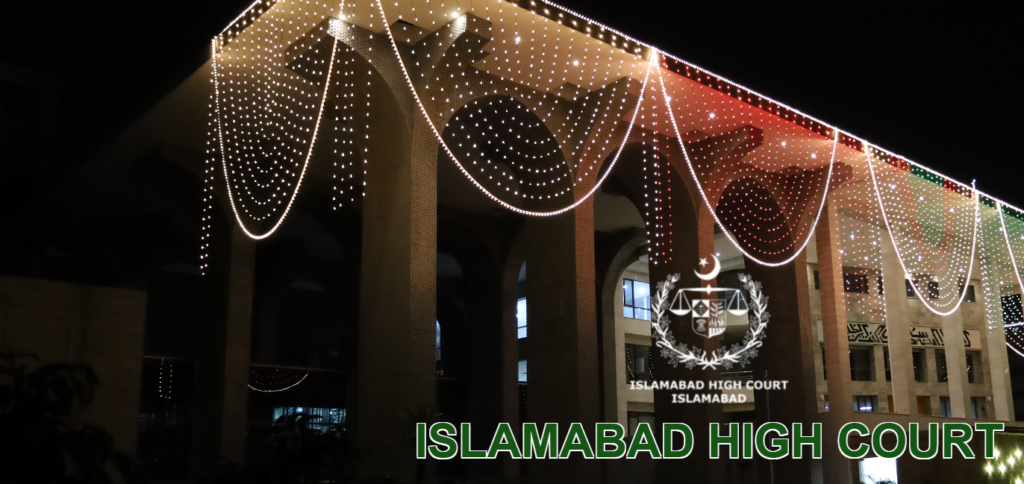IHC Judges Reject Dogar
Five Islamabad High Court (IHC) judges reject Dogar as a judge. They question his seniority and the legitimacy of his appointment. They urge the IHC chief justice to address the issue before the crucial Judicial Commission of Pakistan (JCP) meeting.
In a representation to IHC, CJ Aamer Farooq and Justices Mohsin Akhtar Kayani, Tariq Mehmood Jahangiri, Babar Sattar, Ejaz Ishaq Khan, and Saman Rafat Imtiaz argue that Justice Dogar cannot fulfil the role of an IHC judge until he takes the oath under Article 194 of the Constitution.
“The process of Justice Dogar’s appointment as a judge of Islamabad High Court is incomplete. “They state that the appointment process of Justice Dogar as a judge of the Islamabad High Court is incomplete. He has not yet taken his oath. Consequently, they cannot consider him a judge of the Islamabad High Court.”
The lawyers argue that once Justice Dogar takes his oath, his seniority will start from that date. Thus, Justice Dogar will be lower in seniority than judges who took their oaths before him.
The judges urge the IHC chief justice to resolve the matter before the JCP meeting on February 10.
“We are endorsing a copy of this representation to the Hon’ble Chief Justice of Pakistan, in his capacity as Chairman JCP, to bring the matter to the JCP. This ensures the legality of the proceedings conducted by JCP on 10.02.2025,” the judges contend.
They argue that a judge’s assumption of office requires taking an oath under Article 194, granting judicial authority within the respective high court’s jurisdiction. The oath does not permit serving beyond this jurisdiction.
The representation highlights that Justice Dogar has not yet taken an oath as an IHC judge and has only sworn in as a Lahore High Court judge. Yet, the IHC’s seniority list already lists him as an IHC judge, directly below the chief justice.
“This demonstrates a serious jurisdictional error. A judge cannot be considered appointed to a high court until he takes the oath for that specific high court.”
Brazen attempt to pack the court
Lawyer Abdul Moiz Jaferii says the inclusion of judges from Sindh and Balochistan is mere “window dressing.” The real issue revolves around Justice Dogar’s appointment.
“This is about Justice Dogar and using him to interrupt seniority in the IHC. It deprives independent-minded judges of their deserved station within that court.”
Jaferii criticizes the IHC chief justice, saying he is at odds with most of his judges. Furthermore, for years, the IHC has been run by a CJ who, unfortunately, let down his colleagues. Moreover, he helped powerful circles brush claims of interference under the carpet.
“This is something the government cannot afford to lose,” he notes. He adds that the government tries to manipulate the IHC’s seniority structure, using “federal representation” as an excuse.
“The IHC already has federal representation. There are judges from Karachi, Swat, and Quetta. The Quetta judge last complained that someone brought his father and stood him before him as a coercive measure,” he points out.
Jaferii questions why the government opts for transferring serving judges instead of appointing fresh candidates from Sindh and Balochistan.
“If it was about affirmative action, both the Sindh High Court and the Balochistan High Court submitted lists where candidates did not make the cut. Authorities could have considered these candidates for fresh appointments to the IHC.” Why did it have to be serving judges? And what have these judges done to deserve such transfers ahead of their peers?”
He terms the move a “shambolic and brazen attempt to pack a court.” He expresses shock over the chief justice of Pakistan’s role in legitimizing it.
“Shockingly, the chief justice of the country joins in to celebrate it as some gesture of inclusivity,” the lawyer adds.
Similarly, lawyer Hasan Mann asserts that the Constitution provides only one procedure for appointing a high court judge – through the prescribed initial appointment process, with no alternative.
He explains that while Article 200(1) allows for the transfer of a high court judge from one high court to another, such a transfer cannot be permanent. The president has no authority to appoint a high court judge through transfer.
Furthermore, Mann points out that Article 200(1) cannot be read in isolation. Article 200(2) clarifies the temporary nature of such transfers. Any interpretation suggesting otherwise would effectively grant the president the power to manipulate the seniority of high court judges, contradicting the Supreme Court’s 2014 verdict.
If a high court judge were transferred permanently, he would be placed at the bottom of the seniority list, as in civil services. Any other arrangement, Mann argues, would create chaos in the superior judiciary.
This is why the transferee judge’s consent is essential. Such a move could put him at a disadvantage.
He adds that comparisons with the Indian judiciary are irrelevant. The provisions of the Indian Constitution are worded differently.
Administrative reshuffle in IHC
Following the addition of three new judges, the IHC chief justice has made several administrative changes.
Justice Sardar Sarfraz Dogar is now the administrator of anti-terrorism courts (ATC) and national accountability courts, replacing Justice Mohsin Akhtar Kayani.
“Justice Muhammad Azam Khan is now the administrative judge for Islamabad’s district courts (West). In addition, Justice Arbab Muhammad Tahir is in charge of the FIA courts. Furthermore, Justice Saman Rafat Imtiaz is now the administrative judge of the banking courts.”



